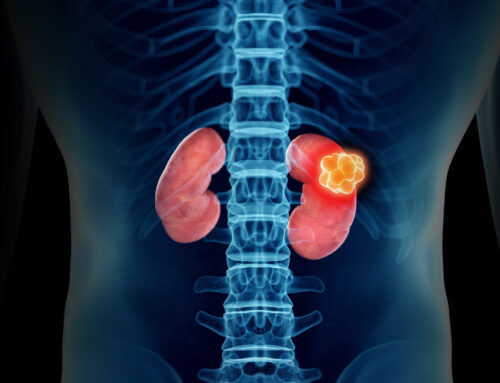March is Brain Injury Awareness Month, an opportunity dedicated to highlighting the challenges faced by the over 5.3 million children and adults in the United States living with brain injury-related disabilities. This annual observance reminds us to educate ourselves, support those affected, and advocate for better resources and understanding. Traumatic brain injuries (TBIs) happen more often than many realize, and their impact can be life-altering. Whether caused by accidents, illnesses, or other factors, TBIs require attention, care, and compassion.
Let’s learn about traumatic brain injuries causes, symptoms, and long-term effects. We’ll also discuss the Brain Injury Association of America’s 2025 campaign, “I’m a Voice for Brain Injury,” and how hospice care can provide comfort and support for those with life-limiting brain injuries.
What is a Traumatic Brain Injury (TBI)?
A TBI occurs when an external force disrupts regular brain function. Disruptions can result from a blow, jolt, or penetrating injury to the head. Traumatic brain injuries are categorized into four levels of severity:
- 1
Mild – Often referred to as concussions, these injuries may involve brief changes in consciousness or mental state.
- 2
Moderate – These injuries involve longer periods of unconsciousness and more significant cognitive impairments.
- 3
Severe – These injuries result in extended unconsciousness or coma, with long-term physical and cognitive challenges.
- 4
Penetrating – These injuries happen when an object enters the brain tissue, piercing the skull and causing severe damage.
While sports-related concussions often make headlines, TBIs can also stem from everyday incidents like slips, falls, car accidents, or workplace injuries. Older adults are particularly vulnerable to TBIs from falls, making it crucial to recognize symptoms early and seek medical attention.
Symptoms of Traumatic Brain Injury
Recognizing the symptoms of traumatic brain injury is the first step toward getting the necessary care. Common symptoms include:
These symptoms may vary depending on the severity of the injury. For example, mild TBIs can cause temporary discomfort, while severe TBIs might lead to long-term cognitive, emotional, and physical challenges. Early diagnosis and treatment are fundamental for better outcomes and prevent further complications.

The Importance of Education and Awareness
Education is critical in preventing and managing traumatic brain injuries. Teaching children and adults about head safety, recognizing concussion symptoms, and understanding the risks associated with certain activities can significantly reduce the incidence of TBIs.
During Traumatic Brain Injury Awareness Month, organizations like the Brain Injury Association of America (BIAA) work tirelessly to spread knowledge and advocate for those affected. Their 2025 campaign, “I’m a Voice for Brain Injury,” aims to personalize patients’ experiences living with brain injuries. This initiative shows that a brain injury is not only a medical condition but a deeply personal journey that impacts every aspect of a person’s life.
We can build a more empathetic and informed society by sharing stories and promoting awareness. This is especially essential for caregivers, healthcare providers, and communities, as understanding the diverse nature of brain injuries is key to providing practical support.
Hospice Care for Life-Limiting Brain Injuries
For patients with life-limiting brain injuries, hospice care can provide much-needed comfort and support. Hospice criteria for traumatic brain injury often include conditions where recovery is unlikely, and the focus shifts to improving quality of life.
At Ascend Hospice Care, we understand the unique challenges faced by patients with traumatic brain injuries and their families. Our approach emphasizes:
Hospice care is not about giving up but making the most of the time left and ensuring that patients and their families feel supported at every step.
How You Can Get Involved
March is Brain Injury Awareness Month, and there are many ways to participate and make a difference:
Brain Injury Awareness Month is a perfect time to reflect, educate, and take action. Whether you are learning about the symptoms of traumatic brain injury, supporting a loved one, or advocating for better resources, your efforts matter.
Traumatic brain injuries are complex and life-changing, but with increased awareness, education, and support, we can make a difference. Let’s use this month to come together as a community and ensure that no one faces the challenges of brain injury alone.
If you or a loved one is dealing with a life-limiting brain injury, remember that hospice care is an option. By focusing on comfort, dignity, and comprehensive support, we can help improve the quality of life for patients and their families.
Together, we can create a world where brain injuries are understood, and those affected are supported with compassion and care.




